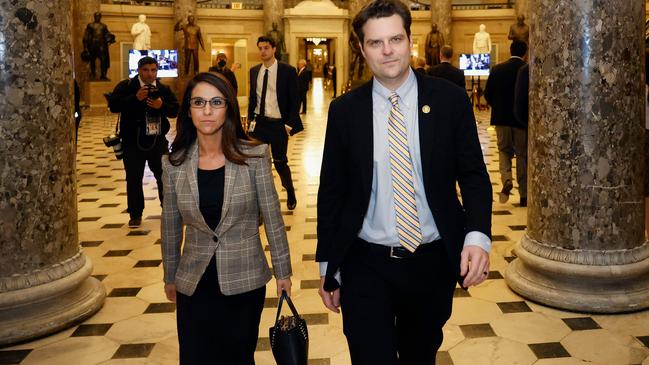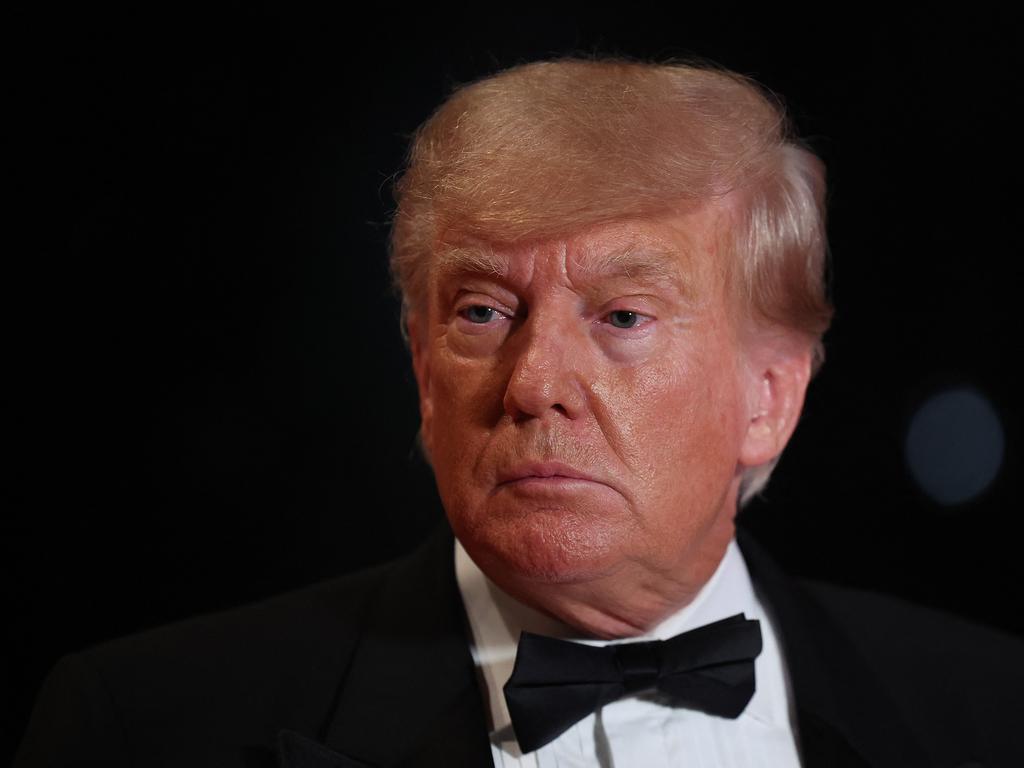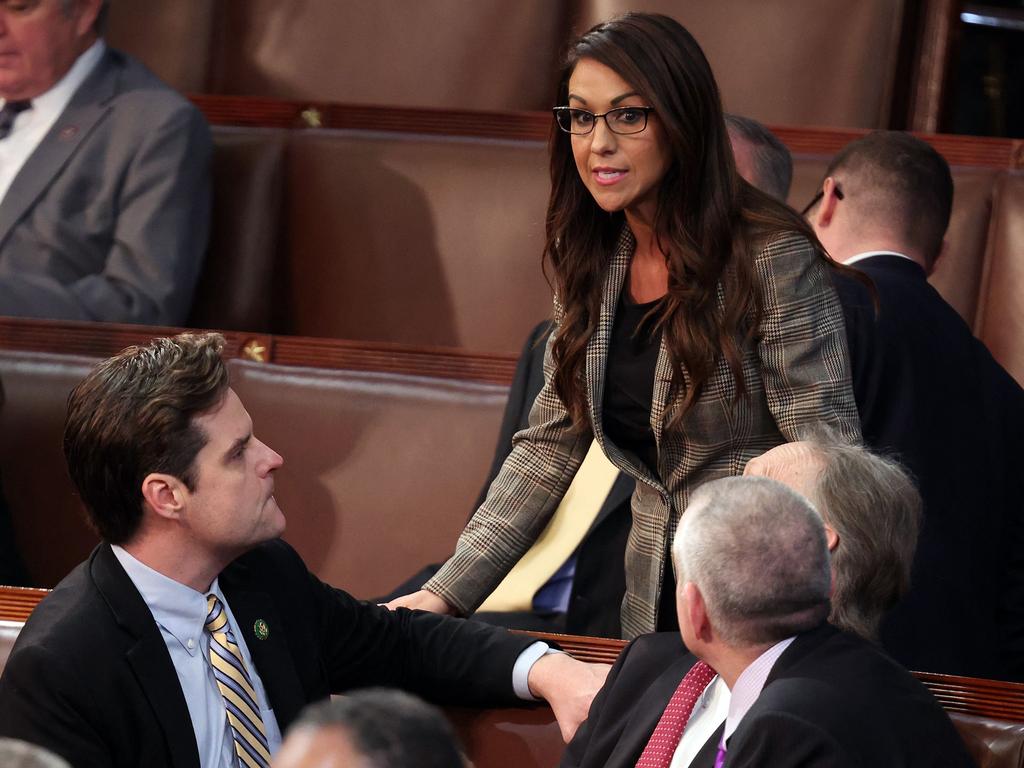Why big-money donors can’t reel in GOP rebels
Many of Kevin McCarthy’s detractors rely on small online donations.

Big Republican donors weren’t much help in pushing Kevin McCarthy over the finish line in his bid to become speaker of the US House of Representatives.
The reason: His dissenters don’t need them.
About half the Republicans who opposed Mr McCarthy fund their campaigns through small, online contributions instead of counting on major donors and corporate political-action committees, a Wall Street Journal review of Federal Election Commission reports found.
Those streams of $US5 and $US10 donations can turn into a flood when a legisalor stakes out a contrarian position and stokes political drama.
“Many of the holdouts do not rely on major donors, PACs and the traditional offerings that a political party can provide,” said Ken Spain, a corporate adviser in Washington and former communications director of the National Republican Congressional Committee. “There’s a perverse incentive for members to elevate their personal brand at the expense of the governing majority.”
While McCarthy opponents such as Matt Gaetz focus on drumming up thousands of small donations by keeping themselves in the spotlight, Mr McCarthy must appeal to an entirely different fundraising class: the party’s most generous donors. As Republican house leader, Mr McCarthy is closely affiliated with the Congressional Leadership Fund, a super PAC that spent $227 million in the last election to win the GOP House majority.
That group counts on massive donations from billionaires, including hedge-fund manager Ken Griffin, Blackstone chief executive officer Stephen Schwarzman, as well as Miriam Adelson, the widow of casino mogul Sheldon Adelson. Those three invested more than $US45m in the Congressional Leadership Fund for last year’s elections.
Super-PACs, corporate PACs and the more-traditional donors who write cheques for the maximum $US2900 per election for candidates they like still make up the bulk of election financing. But small donors are growing in importance — especially for certain candidates.
Some members contend that fundraising is contributed to the stalemate in the speaker’s race.
“There are people that are trying to intentionally sabotage the negotiations, and you can tell who they are by the ones who are putting out fundraising emails,” said Republican representative Austin Scott for Georgia, one of the McCarthy supporters.
The changed political-fundraising landscape cuts across both parties: Some of the Democrats’ top online fundraisers are the ones who have occasionally been at odds with their party’s leadership, including representative Alexandria Ocasio-Cortez ogf New York and Massachusetts senator Elizabeth Warren.
A candidate’s ability to raise huge amounts of money from email, text and social-media appeals has eroded the power of the political parties, business and lobby groups, and donors who dole out campaign contributions, Mr Spain and other political strategists said. That means there is no natural base of influencers to push small-donor-dependent politicians by threatening to withhold election financing.
In fact, high-profile political moments and divisive, contrarian sound bites provide the richest environment for online fundraising, the past few election cycles have shown.
The absence of effective outside power brokers was evident on Thursday, when Mr McCarthy lost several more rounds of voting despite election-funding concessions by a super PAC aligned with him and an endorsement tweet by Tesla and Twitter owner Elon Musk, who isn’t a prolific political donor but has generously given to Mr McCarthy over the years.
The effort to get the 20-odd rebels on board included two of the biggest Republican House outside groups striking a deal: the Club for Growth, a fiscally conservative advocacy group, and the Congressional Leadership Fund, which is aligned with the party’s House leader and works to win a GOP majority.
The Club for Growth spent about $US81m in the last election trying to get what it views as the most conservative candidates into office. That made it the biggest-spending outside group not connected to a political party.
The Congressional Leadership Fund agreed to stay out of Republican primaries for open seats in heavily Republican districts and refrain from spending money to defeat GOP incumbents. That prompted the Club for Growth to withdraw its opposition to Mr McCarthy.
Many of those who opposes Mr McCarthy also are members of the House Freedom Caucus, a group of the chamber’s most conservative Republicans, and received election support from its campaign financing arm, the House Freedom Fund. But the Freedom Caucus hasn’t taken a position on who should be speaker, and some caucus members voted for Mr. McCarthy.
What the dissenters have in common more than anything else is a strong reliance on small donors.
“It’s these very antics that let these obstructionists raise all the money online, creating a very destructive cycle,” said Brendan Buck, a top aide to the previous two GOP speakers of the House and now a partner at a Washington communications firm.
Among the 20 who voted against Mr McCarthy’s bid, nine raised nearly half of their campaign money in the 2022 elections from donors who gave $200 or less. That includes, Lauren Boebert of Colorado, Byron Donalds of Florida and Scott Perry of Pennsylvania.
Mr Gaetz and others made fundraising appeals around their opposition to Mr McCarthy.
Andy Biggs of Arizona boasted in an email to his supporter list, “We BLOCKED Kevin McCarthy from becoming Speaker of the House.” He included a link to make a campaign donation. About 47 per cent of his campaign contributions for the last election came from small donors.
Democrats aren’t missing the fundraising opportunity that a fraught political moment provides.
Democrats chose Hakeem Jeffries of New York) as their leader after Nancy Pelosi of California retired from the post. Mr Jeffries appealed to potential donors in an email Thursday morning: “I need my own massive show of support right now to prove that, while Republicans are in complete disarray, Democrats stand united and ready to take the reins.”
The Wall Street Journal





To join the conversation, please log in. Don't have an account? Register
Join the conversation, you are commenting as Logout